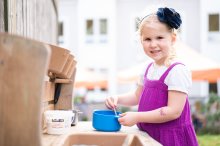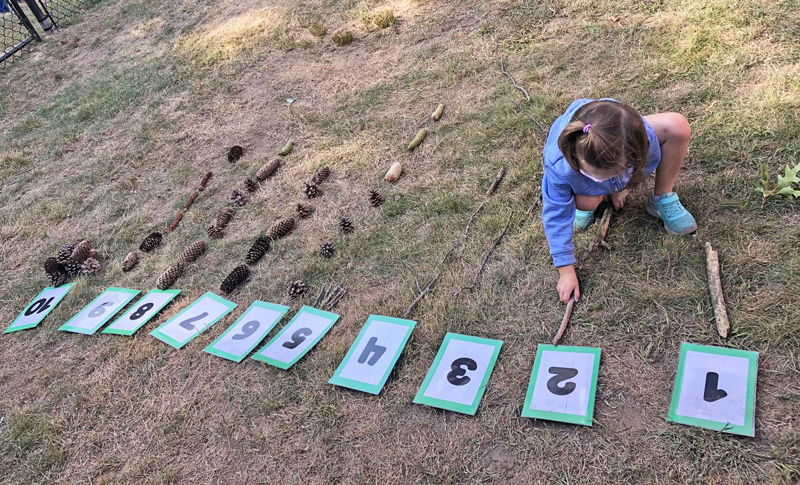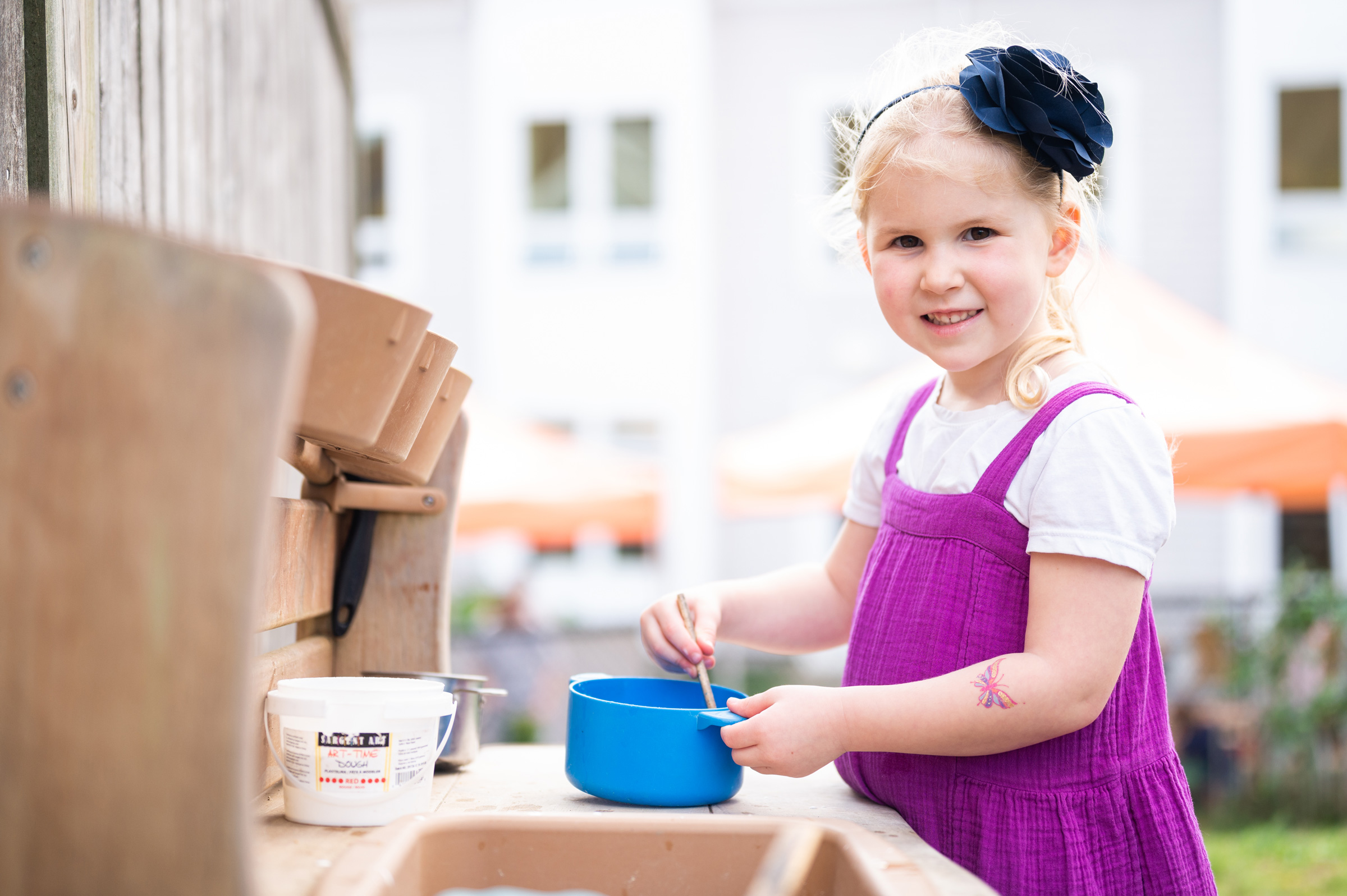Preschool and Kindergarteners Thrive in Outdoor Classrooms

Year-round and in all kinds of weather, students of all ages use nature trails, gardens, and creative learning stations on Inly’s private four-acre Outdoor Classroom.
For our preschool and kindergarten students, outdoor learning expands even further in “mini outdoor classrooms” with inviting tactile materials for active, play-based learning. Classroom doors connect each indoor/outdoor space, making it an easy and natural extension.
What do preschoolers find in their mini outdoor classrooms?
- Mud kitchens (for making mud pies — or whatever they dream up!)
- Wheelbarrows and wooden wagons
- Natural balance beams and stackable tree stumps
- Organic materials and objects found in nature

Students can also bring their indoor work outdoors to change things up and make new discoveries. For instance, a student or teacher might bring the Moveable Alphabet box from the indoor space to the outdoor space and use it with objects found in nature. Think: “A is for acorn, S is for stick!” The possibilities are endless, especially in a Montessori preschool.
As our preschool and kindergarten students begin their Spring curriculum, they will be out on the Discovery Trail observing seasonal changes and early signs of animal life. They use magnifiers and binoculars for close observations to compare and contrast the characteristics of animals and their adaptations for survival.
A favorite activity for the Children’s House science class is visiting the greenhouse with Inly’s Naturalist and Science Teacher, Ellyn Einhorn. They plant seeds, water plants, and investigate worms as they acquire observational skills and learn how to care for living things.

Nature studies are an integral part of Montessori education
“Our goal is to be outside as much as possible, weather permitting, and to strive for the best balance between the two,” explains Dee Slavin, Director of the Lower School. “Maria Montessori believed in connecting children with nature, so this has always been part of our Montessori curriculum. Our children work in our school gardens, observe birds, and name organic objects.”
According to Montessori philosophy, immersion in nature spurs the growth of the “whole child” — by nurturing physical, social, emotional and cognitive development. It also sparks curiosity and encourages young naturalists to think about the bigger world around them. Spending more time in nature is healthy for emotional and mental health during childhood, adolescence and adulthood. What’s more, it inspires children to be environmentally responsible citizens throughout their lifetimes.






